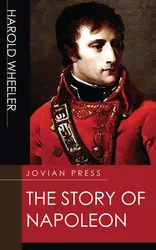Whenever we hear the name of Napoleon mentioned, or see it printed in a book, it is usually in connection with a hard-fought victory on the battlefield. He certainly spent most of his life in the camp, and enjoyed the society of soldiers more than that of courtiers. The thunder of guns, the charge of cavalry, and the flash of bayonets as they glittered in the sun, appealed to him with much the same force as music to more ordinary folk. Indeed, he himself tells us that “the cries of the dying, the tears of the hopeless, surrounded my cradle from the moment of my birth.”
We are apt to forget that this mighty conqueror, whom Carlyle calls “our last great man,” had a childhood at all. He was born nearly a century and a half ago, on the 15th August 1769 to be exact, in the little town of Ajaccio, the capital of picturesque Corsica. This miniature island rises a bold tree-covered rock in the blue waters of the Mediterranean, fifty miles west of the coast of Italy. It had been sold to France by the Republic of Genoa the previous year, but the inhabitants had fought for their independence with praiseworthy determination. Then civil war broke out, and the struggle finally ended three months before the birth of the boy who was to become the ruler of the conquering nation. The Corsicans had their revenge in time, although in a way very different from what they could have expected.


